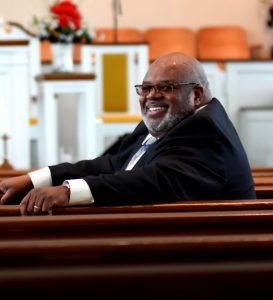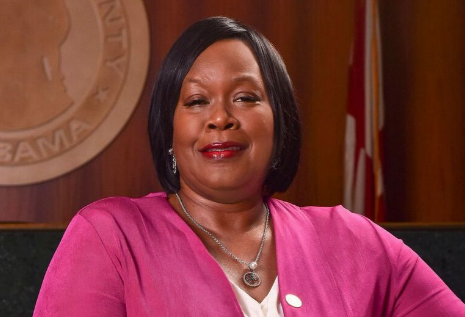By Erica Wright
The Birmingham Times
When Jefferson County Commissioner Sheila Tyson says she wants everyone counted for Census 2020, she means “everybody.”
“Even if you’re in the ICU [intensive care unit], you need to be counted,” she said. “If you’re off in college, you need to be counted in that area where you’re in school. … Everyone in your household needs to be counted. For example, if you have a child living with you, and even if you haven’t adopted that child, you still need to count that child.”
Every 10 years, everyone living in the United States should be counted in the census, so Tyson, chairperson of the Jefferson County Complete Count Committee, and other officials are emphasizing the importance of an accurate count.
Information from the census helps to ensure that more than $1 trillion in federal funds are directed each year to the right communities to support education, health care, road improvements, and more.
The U.S. Census Bureau announced last week that it is suspending field operations for Census 2020 until April 1 because of the coronavirus pandemic. In addition, the deadline for self-response, online or by phone or mail, has been pushed from July 31 to August 14.
Officials say it takes only about six minutes to complete the census, which includes 10 basic questions: name, date of birth, sex, race, whether you own or rent the residence, phone number, and similar information about others living or staying in your household. Typically, more information is submitted when responding to a special offer online.
Census Day
April 1, Census Day, is designed to urge all who live in the United States to self-respond to the census form. Officials encourage participation as soon as invitation letters are received. For those who do not respond during the self-response period, the Census Bureau will follow up in person.
Filling out the census is crucial for communities. If people are not accurately counted, municipalities stand to lose federal moneys that can be used for improvements to infrastructure and services, including education.
“Our school system depends on this count because many programs are funded by federal dollars,” said Perry Macon,

partnership specialist with the Atlanta-based Regional Census Center and pastor of First Baptist Church Woodlawn. “Every community gets involved when it comes to redistricting on the local level because the aim of that is to equally divide the population, so everyone has adequate and proper political representation. … It touches every area of our lives.”
Counting everyone in Jefferson County involves placing Census 2020 posters with internet links and phone numbers at service stations, recreation centers, churches, clubs, “anywhere we see warm bodies, people gathered,” Tyson said.
“We want to remind [people that] it is the right thing to do, and it’s nothing that is going to get them in trouble.”
Tyson said U.S. Census Bureau data shows that the mostly African American localities of Brighton, Fairfield, Lipscomb, Center Point and Midfield have historically been undercounted. The county commissioner believes this is because many in those communities are afraid the information will be used against them.
Information Not Shared
“All census information is private, and it is against the law to give it to anyone,” Tyson said. “If you have tickets, a warrant for your arrest, or anything like that, the census has nothing to do with that. All the census does is count you. … You won’t be arrested or penalized for filling out the survey.”
Macon agrees and said areas that have historically been difficult to count are the focus of Census 2020 efforts.
“Many of our urban areas — [particularly] low-income, underserved communities that often include many of our senior citizens and children — were left off the census,” he said.
“No one’s personal, identifiable information can be accessed by any other agency: no law enforcement or housing agency; no other type of government benefit agency, such as the SNAP [Supplemental Nutrition Assistance Program] or WIC [Women, Infant and Children] program,” he said. “That information has been held confidential for more than 72 years. Even if someone were involved in a genealogical family search, they can only access the 1940 census data and going backward. … It is very important that everyone get involved in spreading the census message. The census needs to be added to the conversation because it affects everybody.”
Tyson wants 100 percent of Jefferson County’s residents counted. If not that number, then well above the 74 percent counted in 2010 and the 73 percent in 2000.
“We at least need to get in the [90 percent range],” she said. “If we can get 95 percent, I’ll take that, but I really want 100 percent [census participation].”
The CCC chairperson says she is aware that there may have been some apathy about the census in the past.
“We haven’t put effort in,” Tyson said. “If you go back to the 1990s, the percentage was even lower. If [Jefferson County] is undercounted again, we will lose some house seats in Montgomery … [and that means] we’re not only losing seats but also losing money. I want people to fill out the census survey, to do what they’re supposed to do and make sure they have everything correct.”
She added, “It’s important that we count everyone — and we’ve got to get it right this time because this is the only opportunity we will have for the next 10 years to improve the quality of life for every citizen in Jefferson County.”
For more information on Census 2020, visit 2020census.gov.





